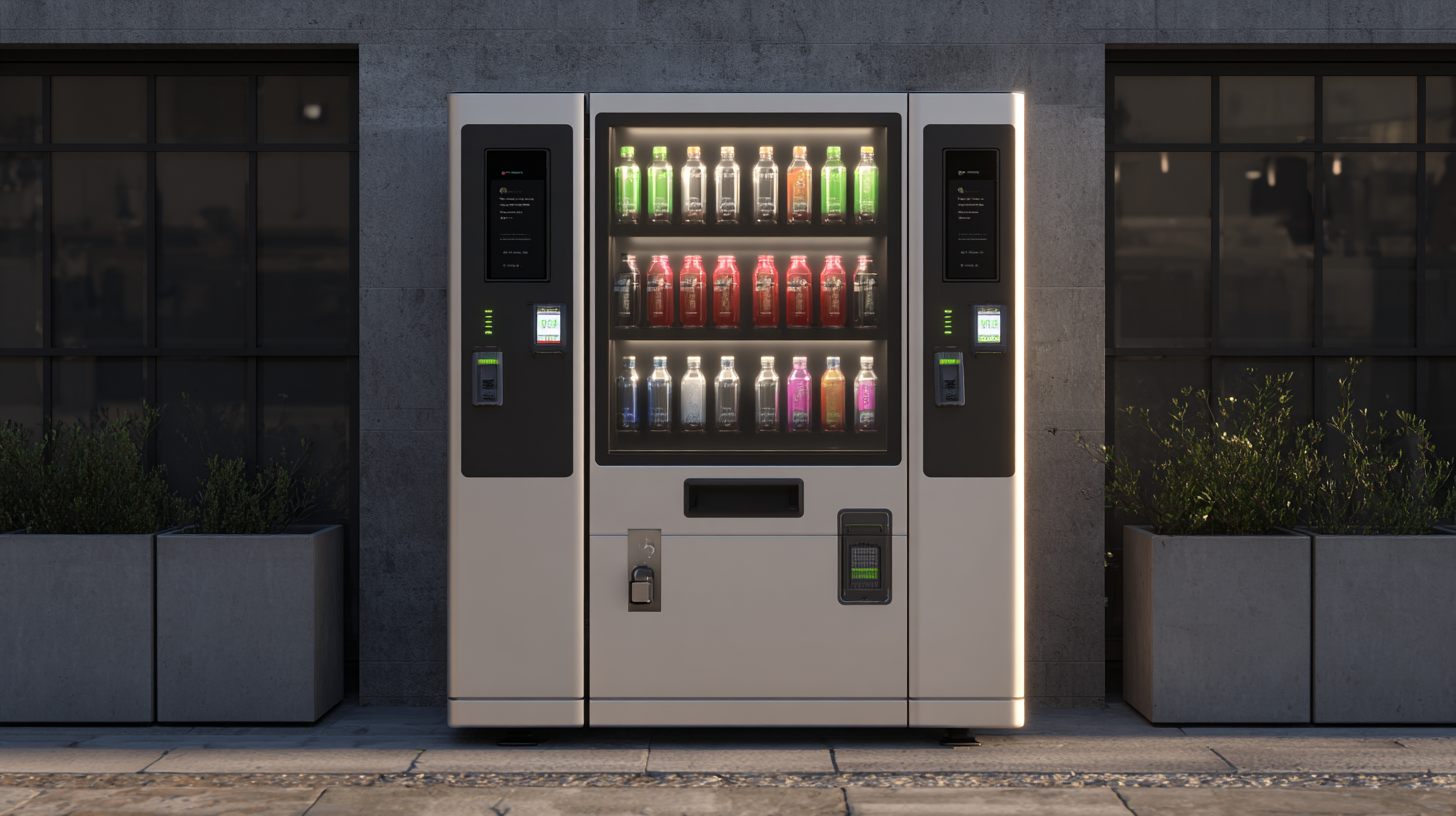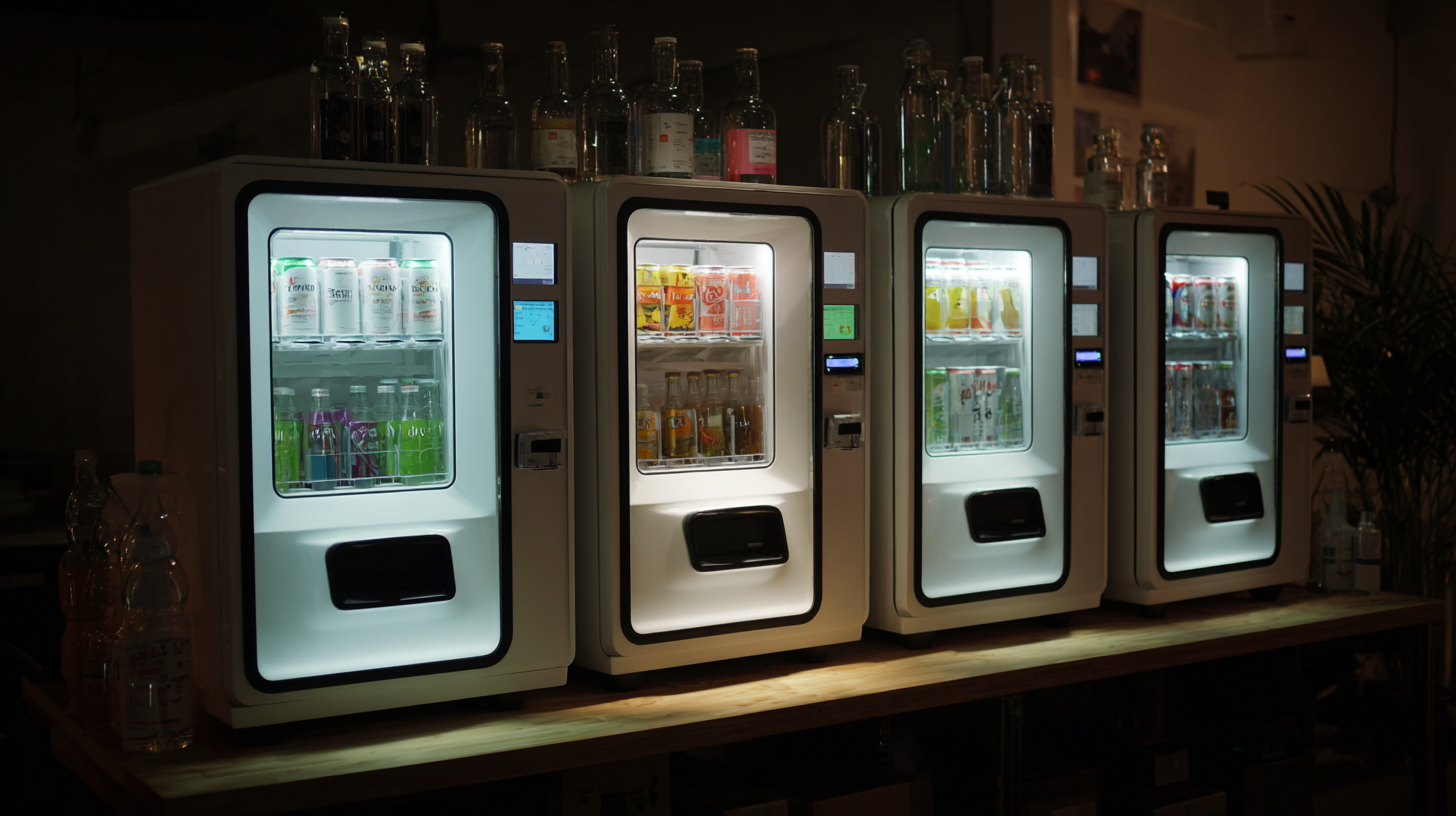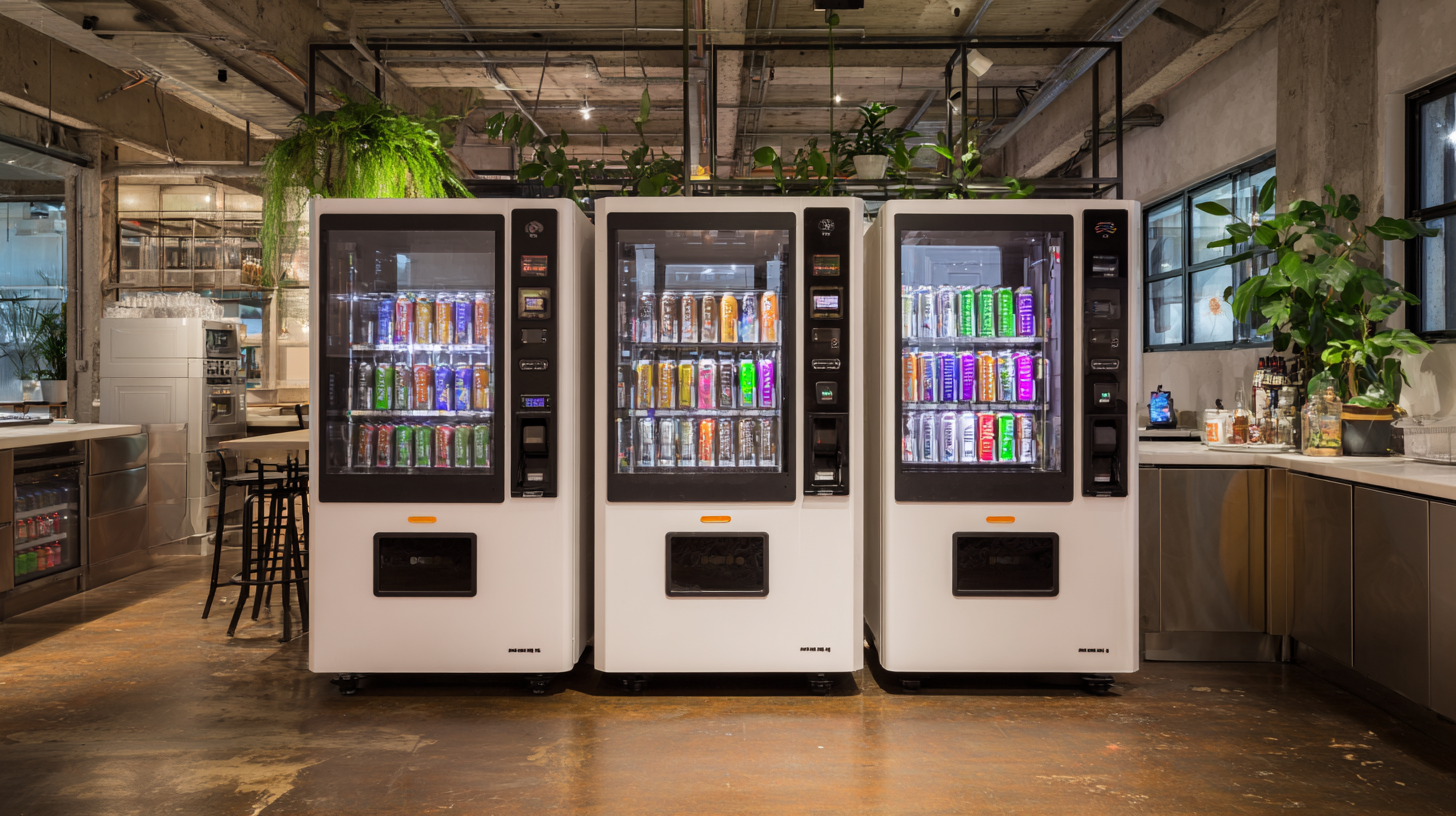Solutions for Innovative Beverage Dispensing Technology
In today's rapidly evolving beverage industry, the demand for innovative beverage dispensing technology is at an all-time high. As businesses strive to enhance customer experience and streamline operations, "drink machines" have emerged as a cornerstone of modern beverage service. This blog delves into the multifaceted advantages of post-sale services and maintenance costs associated with these cutting-edge drink machines. Exploring their pivotal role in optimizing efficiency and ensuring reliability, we aim to outline the future landscape of beverage dispensing technology. With an emphasis on innovation and sustainability, it becomes crucial to understand not only the immediate benefits of these machines but also the long-term value they bring to businesses and consumers alike. Join us as we uncover the potential of drink machines to revolutionize how we enjoy our beverages.

Key Features of Innovative Beverage Dispensing Technology
In today's fast-paced world, the beverage industry is undergoing a significant transformation driven by innovative dispensing technologies. Key features of these advancements include enhanced user experience, customization options, and integration with smart technology. The latest solutions not only cater to diverse consumer preferences but also streamline the dispensing process, making it easier and more efficient for both businesses and customers.
Another critical aspect of innovative beverage dispensing technology is sustainability. Many new systems focus on reducing waste through precise measurements and eco-friendly materials, aligning with the growing demand for sustainable practices. Additionally, real-time data analytics helps businesses to optimize inventory and reduce spoilage, ensuring that consumers receive the freshest products. As companies continue to explore these technological enhancements, the beverage market is poised for exciting developments that enhance innovation while addressing environmental concerns.

Advanced Materials Enhancing Beverage Dispensing Performance
The beverage dispensing industry is experiencing a revolutionary transformation, largely driven by advancements in materials science. Innovative materials enhance the overall performance of beverage dispensing systems, ensuring that users enjoy optimal functionality and efficiency. For example, the incorporation of antimicrobial coatings can significantly reduce the risk of contamination, providing a safer and healthier experience for consumers. These advanced materials not only improve hygiene but also prolong the lifespan of dispensing equipment, ultimately contributing to sustainability in beverage service.
Moreover, new composite materials are being developed to withstand the pressures and temperatures associated with various beverage types. These materials are engineered for durability, ensuring that they can handle carbonated drinks, hot beverages, and acidic juices without compromising integrity. Additionally, lightweight materials offer ease of installation and maintenance, making it easier for businesses to integrate these advanced dispensing systems into their operations. As the demand for high-quality beverage experiences continues to grow, focusing on advanced materials will undoubtedly shape the future of beverage dispensing technology.

Energy Efficiency in Modern Dispensing Systems
Innovative beverage dispensing technology is evolving rapidly, with a strong focus on energy efficiency. Modern dispensing systems are not just about convenience; they also play a crucial role in reducing energy consumption and minimizing environmental impact. By optimizing the use of energy in these systems, businesses can significantly lower operational costs while promoting sustainability.
One effective strategy for enhancing energy efficiency is the implementation of smart controls. These systems can dynamically adjust the cooling and dispensing processes based on real-time demand, ensuring that energy is used only when needed. Additionally, regularly maintaining equipment and using energy-efficient appliances can prevent unnecessary energy wastage.
Another tip for businesses looking to improve energy efficiency is to invest in insulation and design features that minimize energy loss. For instance, using insulated tanks and energy-efficient pumps can enhance performance and further reduce consumption. Adopting these practices not only helps in cutting costs but also signifies a commitment to sustainable business practices.
Solutions for Innovative Beverage Dispensing Technology - Energy Efficiency in Modern Dispensing Systems
| Technology Type | Energy Efficiency Rating | Average Dispensing Time (seconds) | Cooling Method | Typical Usage Location |
|---|---|---|---|---|
| Gravity-Based Dispenser | A+ | 1.5 | Ambient Air | Cafes |
| Pressurized CO2 System | A | 2.0 | Mechanical Chiller | Restaurants |
| Electromechanical Dispenser | A++ | 1.0 | Refrigeration Unit | Fast-Food Outlets |
| Smart IoT Dispenser | A+++ | 1.2 | Active Cooling | Event Venues |
| Solar-Powered Dispenser | A++ | 3.0 | Solar Energy | Outdoor Events |
User Experience and Customization in Beverage Dispensing Solutions
The rising demand for individualized beverage experiences is reshaping the beverage dispensing market. Consumers are looking for more than just a drink; they seek a customizable experience that allows them to tailor tastes and ingredients according to their preferences.
This shift is prompting brands to innovate their dispensing solutions, offering greater flexibility and variety. From precise flavor adjustments to the incorporation of unique ingredients, beverage dispensers are increasingly becoming platforms for user creativity and satisfaction.
Moreover, sustainability plays a crucial role in consumers' choices, enhancing the need for eco-friendly packaging solutions. As the demand for recycled plastic packaging surges, beverage manufacturers are responding by integrating sustainable practices into their dispensing technologies. This creates lucrative opportunities for growth, as the market for beverage dispensers is projected to reach significant milestones.
The growing emphasis on user experience and personalization, combined with sustainability, is paving the way for a new era in beverage dispensing technology, where every pour reflects the unique preferences of the individual consumer.
Integration of Smart Technology in Beverage Dispensing Machines
The beverage dispensing industry is undergoing a significant transformation with the integration of smart technology, leading to enhanced operational efficiency and improved customer experience. According to a recent market report by Allied Market Research, the global smart beverage dispensing machines market is projected to reach $1.5 billion by 2027, growing at a CAGR of 12.4% from 2020. This growth is driven by the increasing demand for automated solutions that streamline the service process, reduce wait times, and minimize wastage.
One of the key advancements in this sector is the implementation of IoT-enabled machines, which allow businesses to track inventory levels in real-time and analyze consumption patterns. For instance, Coca-Cola has adopted smart vending solutions equipped with sensors to optimize restocking cycles, ultimately saving costs and enhancing service quality. As consumers increasingly seek personalized experiences, beverage dispensers integrated with AI technology can suggest drink combinations based on individual preferences, further enriching the customer interaction.
Tips for Implementation: When considering the integration of smart technology in beverage dispensing machines, focus on user-friendly interfaces and seamless connectivity to allow customers to customize their drinks easily. Additionally, ensure regular data analysis to adjust offerings based on consumer trends, making your service more adaptive to market demands. Remember, investing in staff training on these new technologies is crucial to maximizing their potential and ensuring a smooth transition.
